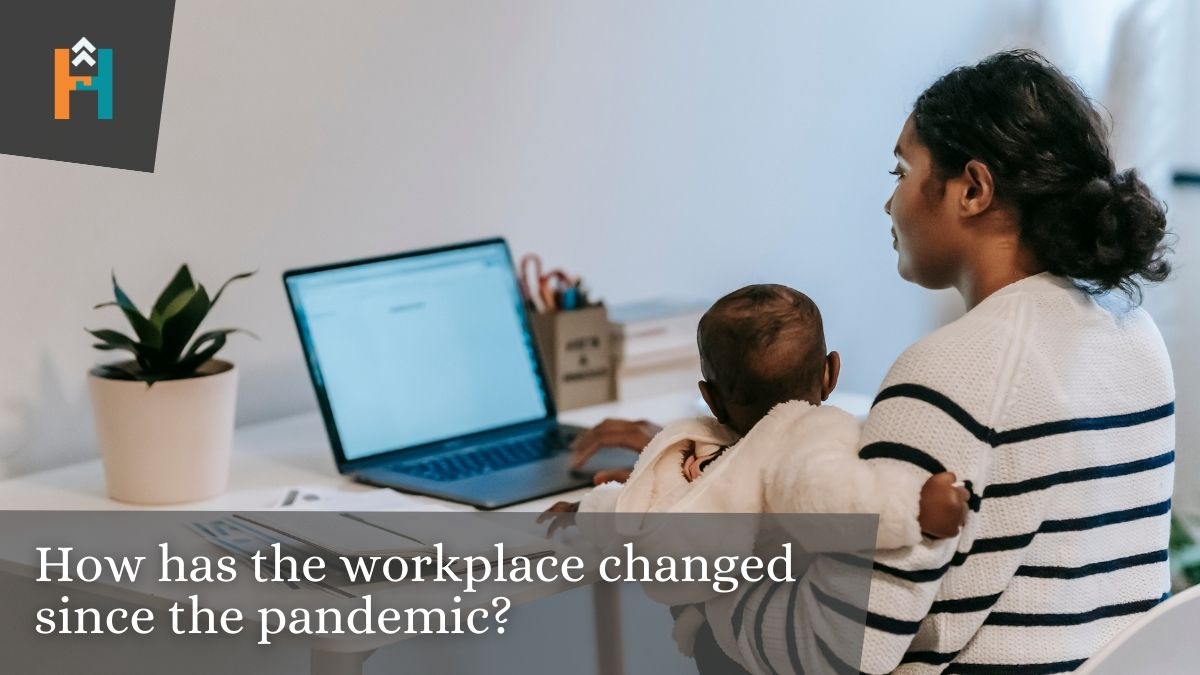Things have changed on the work front since March of 2020. They had to. As we return to a more “normal” state, which of those changes are here to stay? What’s going by the wayside? Our founder, Mark Phillips, shares his thoughts.
What’s gone away?
Required in-person interviews – During lockdown, employers began making job offers without having a face-to-face meeting. Now it’s actually rare for a company to fly someone out for an in-person interview, especially if it’s a remote position. Some of the questions being asked have changed, too.
Working full-time in the office – Despite some big companies insisting that workers return to the office, those of us in edtech are almost an entirely remote workforce. Many companies, HireEducation included, shuttered physical office space during the pandemic and have no plans to be anything other than a remote team (see more below).
Unlimited vacation days – Offering employees unlimited vacation time was a big pitch for startups to attract talent at one point. It’s not completely gone, but most companies have replaced it with more structured programs and paid time off (see more below).
What’s back?
Client-facing travel – While this is still lower than before the pandemic, work travel is definitely back for most client-facing employees.
President’s Club – Salespeople going on a big incentive trip as a performance reward has returned, but the way these clubs look and feel has changed as priorities have shifted post-pandemic.
Hiring patterns and tempo – For recruiters, the average search length to fill a position is back to 61 days (in edtech, at least), which is what it was prior to the pandemic. Also, the number of candidates applying for jobs is back to historical norms. This is great news for everyone.
What’s new and here to stay?
Remote work – Prior to the pandemic, most companies were uncomfortable with a fully remote workforce and the ability to work remotely was considered a perk. Now working remotely – at least part of the time – is expected.
Even though some companies are now forcing a physical return to the office, most offer some sort of hybrid option where employees can work some of the time from home and some of the time in the office. For many employers, there was a great deal of resistance to this sort of flexible work arrangement before 2020. A large number of companies have even moved to a “remote-first” culture, meaning that people who used to be in the office, including C-level employees, are now remote, and the needs of their remote employees are prioritized.
Compensation equity irrespective of location – Companies used to avoid hiring in certain markets because salaries might be lower in those regions (think New York City vs. Oklahoma City), but they don’t seem to be doing that anymore. The first iteration of salary equity legislation made it illegal for companies to ask salary history or current salary, but only 21 states currently have such a ban. Hopefully, we’ll see more of this.
Pay equity legislation, mostly related to gender – A number of states in the last couple of years have passed legislation that requires companies to post salary ranges on all job listings and to provide salary bands to employees when they ask for them. We as recruiters don’t even ask about salary history anymore.
Mental Health and Work-Life Balance Initiatives – Companies with remote employees in different states often adhere to the specific laws in that state. Our benefits and initiatives follow the regulations set out by California, since theirs are the strictest. We talked about this much more in our post about which benefits best attract and retain talent.
DEI focus – During the pandemic, as a result of the murder of George Floyd, the issue of racial inequity came to the forefront of our national conversation. Discussions about DEI are now a standard part of new employee intake. This is not just about having a mixed-race team, but extends through which benefits and work-life balance initiatives to offer, which can also increase your company’s diversity.
DEI is not just about race, but also gender, sexual orientation, socioeconomic status, and age. In some states, there is now legislation in the works to prevent potential employers from requiring a high school graduation date, which is an indicator of age (except in age-restricted careers such as airline pilot).
What changes have seen in your workplace and workforce since the pandemic? What do you do that you didn’t do before? What don’t you do anymore? What might continue to change as things evolve?
More Resources

We get it, interviews can be stressful. They are your main chance to determine if you are a fit for the job. While there are lots of things you should [...]

“The only constant in life is change” -Heraclitus No matter where you are in a company, your career there is unpredictable. Call to mind 10 different decision-makers at your place [...]

Interview prep is not just for candidates! In today’s market, hiring managers must consider how they will attract and secure their ideal candidates as much as candidates need to think [...]
